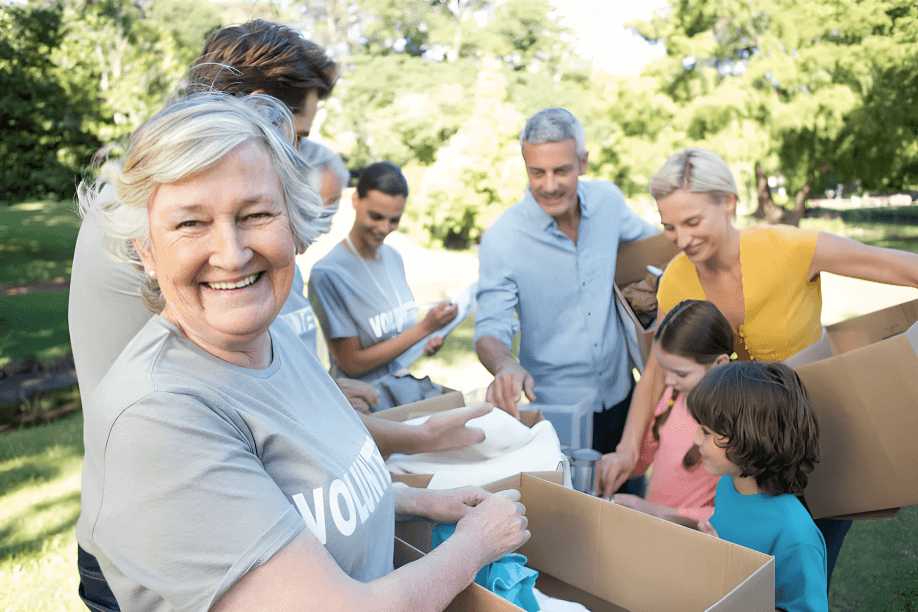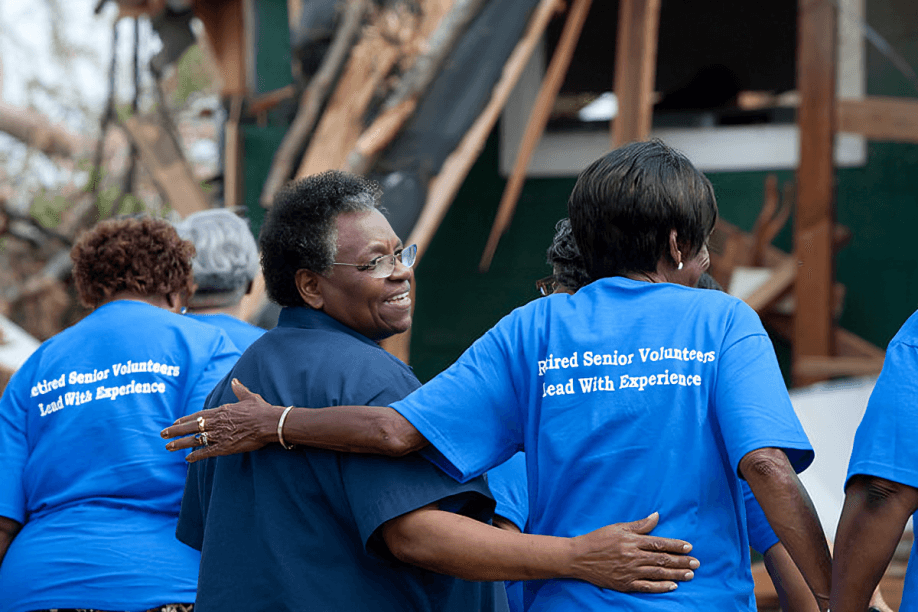
“
Retirement, while often welcomed as a period of rest, can sometimes leave older adults wondering how to maintain a sense of value and fulfillment. How volunteering can bring purpose to retirement is not merely a hopeful idea—it’s a deeply rewarding path to personal growth, community connection, and renewed vitality. 1
1
”
Volunteering helps retirees structure their days, adding direction and rhythm that combat boredom. Regular activities, such as helping at food banks or libraries, provide satisfying goals and emotional stability. 1
Seniors who volunteer report lower levels of stress. Participating in meaningful work shifts focus from internal worries to outward contributions, improving emotional resilience and reducing feelings of isolation. 2

Volunteering promotes physical activity, depending on the task. Gardening, stocking shelves, or walking rescue dogs can increase movement, flexibility, and cardiovascular health among older volunteers.
The feeling of being needed positively impacts self-esteem. Retirement can diminish one’s sense of being useful, but consistent service reminds seniors they have much to offer and are still essential. 3
Contributing to a cause brings spiritual fulfillment. Many retirees find that helping others adds a deeper sense of meaning to life, echoing long-held values of kindness, compassion, and generosity. 4
Community involvement boosts emotional well-being. Seniors who volunteer locally feel more connected, gaining trust and a sense of belonging that strengthens their ties to the community. 5
Mentoring lets retirees share their wisdom. Guiding younger people builds intergenerational bonds and helps seniors pass on valuable skills, stories, and traditions in meaningful ways. 6
Volunteering helps reduce depression in retirees. Feeling appreciated and staying emotionally active through helping others supports mental health, especially during grief or retirement transitions. 7
Volunteering improves sleep patterns. A sense of daily achievement, physical activity, and emotional satisfaction often help retirees fall asleep more easily and wake up feeling more refreshed and hopeful. 8

Those who volunteer regularly may live longer. Studies suggest a link between helping others and increased longevity, possibly due to better emotional health, physical activity, and reduced feelings of helplessness.
Retired professionals can keep their expertise alive. Volunteering in their field—like retired teachers tutoring or retired doctors offering advice—keeps minds active and skills sharp while serving communities. 9
Seniors gain joy from giving back. Helping people who are less fortunate or supporting causes they care about sparks happiness and strengthens personal values, deepening appreciation for life in retirement. 10
Volunteering sharpens communication skills. Speaking with others, leading meetings, or helping at events boosts social confidence and helps prevent withdrawal often felt during retirement. 11
Having a volunteer role reduces idle time that can lead to unhealthy habits. Instead of feeling purposeless, retirees find a reason to wake up and get involved with positive, meaningful tasks. 12
Volunteering encourages learning new things. Whether mastering digital tools for virtual volunteering or learning about new social issues, seniors expand their knowledge and curiosity in active, empowering ways. 13

Participating in volunteer work gives retirees a lasting legacy. Contributing time and energy to causes builds a meaningful impact that lives on—whether in community improvements or stronger institutions.
Volunteer work fosters gratitude. Being exposed to others’ challenges often increases retirees’ appreciation for their own lives, enhancing emotional well-being and promoting thankfulness and hope. 14
Volunteer work fosters gratitude. Being exposed to others’ challenges often increases retirees’ appreciation for their own lives, enhancing emotional well-being and promoting thankfulness and hope. 15
Helping others restores confidence. For those who struggle with the loss of job roles or physical changes, volunteering can rebuild self-worth by proving they are still capable of doing important, helpful work. 16
Seniors who volunteer often report feeling younger. The energy and excitement of working with others, achieving goals, and participating in active environments help keep both body and spirit youthful. 17
Philosopher Albert Schweitzer once said, “The purpose of human life is to serve.” In retirement, volunteering transforms this ideal into action—making seniors feel fulfilled and deeply connected to life. 18


